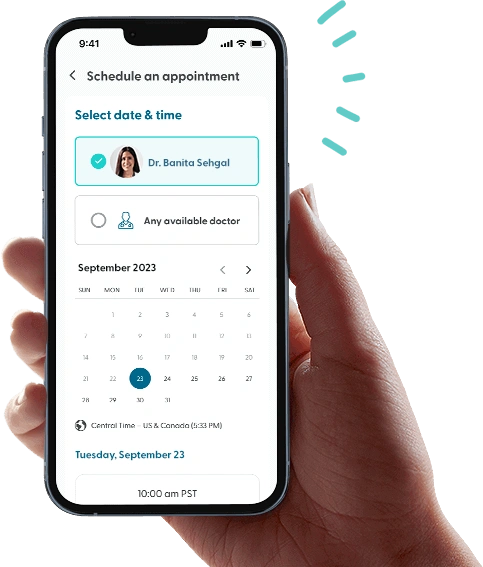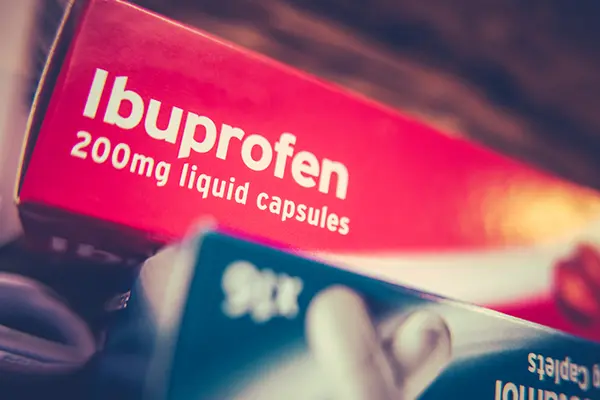Wound Infections: Which Antibiotics Should I Use?

Summary
- A wound infection is caused by microorganisms that enter through the skin. It’s easier to get an infection through an open wound, but closed wounds may also become infected.
- Antibiotics are effective for treating a wound infection and there are various types you can use, including topical, oral, and intravenous (IV) antibiotics.
- Oral and IV antibiotics may only be prescribed by a doctor.
- Untreated wounds may cause life-threatening conditions.
- Alternative treatments are available for those who cannot use or prefer not to use oral antibiotics to treat wound infections.
According to the National Library of Medicine, approximately 6.5 million patients suffer from chronic wounds with more than $25 billion spent on wound care treatment in the U.S. each year.
While minor wounds may heal with over-the-counter treatments, such as ointments and creams, patients with more severe wounds will require a course of antibiotics.
In this article we'll cover wound infections, their symptoms, the antibiotics and alternative treatments that can be used to treat them, and what happens when they’re left untreated.
What is a Wound Infection?
A wound becomes infected when bacteria or fungi enter the wound and start multiplying.
The skin is a natural barrier that guards the body against pathogens, such as bacteria and viruses. Once this natural barrier is compromised by a break in the skin, microorganisms (germs) can enter the body and multiply within the wound, causing an infection.
Open wounds, such as cuts, tears, abrasions, punctures, and lacerations, are more susceptible to infection, but closed wounds may also become infected and sometimes fill with pus or cloudy fluid when they do.
Key Point: What Are the Risk Factors for Wound Infections?
There are certain factors that increase the likelihood of wound infections.
These include:
- Improper wound care practices
- Malnutrition
- Immune system disorders, including cancer and HIV
- Incontinence
- Paralysis
- Old age
- Hospitalization
- Surgical procedures; especially those with long operation times
- Diabetes
- Morbid obesity
- Smoking
- Poor hygiene
How Do I Know if a Wound is Infected?
Patients who develop infected wounds after surgery will likely be closely monitored by doctors and nurses while they recover in hospital, or will receive wound care at their follow-up appointments.
If they develop a surgical site infection (SSI), a doctor will provide the required medical treatment.
Key Point: What is a Surgical Site Infection (SSI)?
A surgical site infection (SSI) is a postoperative infection that occurs in the region of the body where the surgery was performed. Surgical site infections can be superficial or involve deeper tissues and organs.
Despite the precautions taken by medical staff, surgical wounds can still become infected and they are typically treated with antibiotics but may require another surgery to remove the infection.
However, if you’re not under the care of medical staff, here are a few signs you can look for that indicate a possible infection:
- Tenderness around the wound
- Skin around the wound that’s warm to the touch
- Cloudy, yellow, or green fluid draining from the wound
- Increased pain and swelling at the wound site
- A crust around the wound
- A wound that emits a foul smell
- A scab that increases in size
- Swollen lymph nodes
- A fever
What Happens to an Untreated Wound Infection?
Infections that are left untreated can have life-threatening consequences, some of which include:
- Cellulitis: A painful infection of the skin (upper and/or lower layers) with the potential to enter the bloodstream.
- Gangrene: Death of body tissue in the extremities, muscles, and other organs.
- Sepsis: Otherwise known as blood poisoning, this is a type of inflammation that spreads throughout the body, affecting various organs. If septic shock occurs, the patient may experience a fatal drop in blood pressure.
- Osteomyelitis: Infection of the bone tissue that results in the bone having to be removed.
Key Point: When Should I Seek Medical Attention?
Some infected wounds can be treated at home, while others require immediate medical care. You should contact a health care provider if the wound:
- Is large or deep
- Has an irregular shape or jagged edges that make it difficult to disinfect
- Is a puncture wound
- Won’t stop bleeding when pressure is applied
- Was caused by an animal or human bite
- Was caused by a rusted object
- Is contaminated by dirt or foreign materials, such as splinters or glass
- Shows no signs of healing, such as scabs or new tissue formation, within a month
- Changes color or goes numb
If the injured individual becomes disorientated, has difficulty breathing, is in extreme pain, or has a high fever, get propmpt medical attention. These are symptoms of sepsis that require immediate hospitalization.
If you're unsure about the seriousness of a wound, consult a medical practitioner before attempting to treat it at home.
What are the Treatment Options for a Wound Infection?
Some infected wounds can be treated with OTC medications at home. However, if you have serious injuries that have become infected, you’ll need professional medical care.
Below are some treatment options:
- Home Care: Superficial wound infections (infections on the surface of the skin), like those from small cuts, scrapes, and abrasions, can be treated at home with ointments, creams, topical antibiotics, and pain medications. If your wound does not heal on its own, seek medical attention.
- Medical Care: If any of the more serious symptoms mentioned earlier are present, it’s prudent to visit your healthcare provider. Only a doctor can prescribe the oral antibiotics required to treat your wound infection.
- Hospitalization: If the wound has been contaminated, the person is exhibiting signs of sepsis, or the wound requires extensive debridement, the patient will be hospitalized for treatment.
Hospitalization also occurs if the patient requires intravenous (IV) antibiotics for their infection.
In cases where a surgical wound infection cannot be treated with antibiotics alone, the patient may have to undergo surgery to heal the infection.
Key Point: What is Wound Debridement?
Wound debridement refers to the removal of necrotic (dead) skin tissue and other contaminants to facilitate the wound healing process.
There are various types of debridement. Depending on the severity of the wound infection, as well as the person's age and overall health, it may be done as an inpatient or outpatient procedure.
When Should I Get Antibiotics?
If your wound does not heal on its own or it's serious enough that you need to visit a doctor or hospital, you’ll be prescribed antibiotics that may be topical, oral, or intravenous.
Topical antibiotics are available over-the-counter and with a prescription, while oral antibiotics can only be purchased with a doctor’s prescription.
IV antibiotics are administered at healthcare facilities but can also be taken at home under the guidance of a clinician. These antibiotics are typically reserved for serious infections, such as sepsis.
Unsure which antibiotic is right for you?
Don't make guesses when it comes to your health. Schedule an online appointment so you can recover more quickly.


What are Some Common Antibiotics for Wound Infections?
The type of antibiotic you are prescribed for a wound infection will depend on a number of factors, such as:
- The cause of your wound’s infection
- Any allergies you have
- Your overall general health
- The antibiotic’s interaction with other medication you may be taking
Here are some common antibiotics:
Topical Antibiotics
- Bacitracin
- Neomycin
- Polymyxin B
- Mupirocin
- Nitrofurazone
- Fusidic acid
Oral Antibiotics
- Amoxicillin-clavulanate
- Cephalexin
- Clindamycin
- Dicloxacillin
- Doxycycline
- Trimethoprim-sulfamethoxazole
IV Antibiotics
- Cephalosporins
- Penicillin
- Fluoroquinolones
- Nitroimidazoles
- Glycopeptides
- Oxazolidinone
- Carbapenems
The dosage of antibiotics varies depending on the patient, the severity of their infection, and the type of microorganism that has caused the infection.
It is important that patients follow doctors’ guidelines and complete the entire course of antibiotics, whether or not they feel better by day 3 or 4 of their treatment.
Key Point: Which Factors Affect Wound Healing?
Some factors that may affect wound healing include:
- Age: The older you are, the longer it takes for wounds to heal.
- Obesity: Increased body fat and excess weight put a strain on your body and its ability to heal.
- The type of wound: The severity of the wound impacts healing.
- Skin moisture: Skin needs moisture in order to heal and patients with drier skins may require different types of wound dressings to aid recovery.
- Chronic conditions: Those with diabetes and other comorbidities will need more time to heal.
- Medications: Certain drugs will delay wound healing.
- Wound care: Both proper and improper wound management affect how quickly a wound heals.
What are Some Alternatives to Oral Antibiotics?
If you’re allergic to oral antibiotics, have developed antibiotic resistance, or if you’re pregnant and cannot use certain antibiotics, you can explore the following options:
- Natural remedies: These should be used only on minor wounds. They include aloe vera, honey, tea tree oil, snail mucin, topical vitamin E, and more. Wounds take longer to heal with these remedies.
- Topical antibiotics: These are considered safer than oral antibiotics, but individuals — especially those who are pregnant — should consult a healthcare provider first.
- Corticosteroids: Steroids may be suitable alternatives to antibiotics, but should be taken in low doses by pregnant women.
- Hospitalization: This is the best option for severe infections that require IV antibiotics.
Key Point: What is Antibiotic Resistance?
One of the potential consequences of not completing an antibiotic course is antibiotic resistance. Antibiotic resistance occurs when bacteria develop the ability to combat antibiotics, rendering them ineffective.
According to the World Health Organization (WHO), antibiotic resistance is one of the greatest threats to global health.
To avoid developing antibiotic resistance, patients should:
- Only use antibiotics when they’ve been prescribed.
- Dispose of unused antibiotics.
- Not share their antibiotics with anyone.
- Only purchase antibiotics prescribed by a board-certified doctor.
- Prevent infections by taking care of themselves and practicing good hygiene. Follow their healthcare provider's guidelines for taking antibiotics.
Where Can I Learn More About Antibiotics for Wound Infections?
If you’re concerned about a wound and think you may need antibiotics, you can speak to a board-certified doctor or nurse practitioner from the comfort of your home. Head over to LifeMD to schedule a telehealth appointment.
More articles like this
Feel better with LifeMD.
Your doctor is online and ready to see you.
Join LifeMD today and experience amazing healthcare, discounted labs and prescription medications... plus around-the-clock access to medical guidance.










